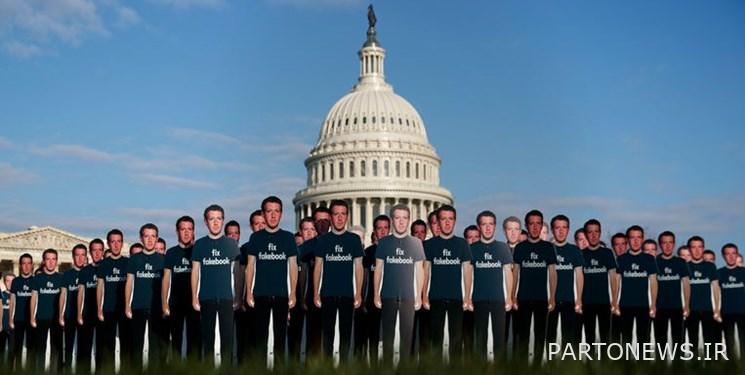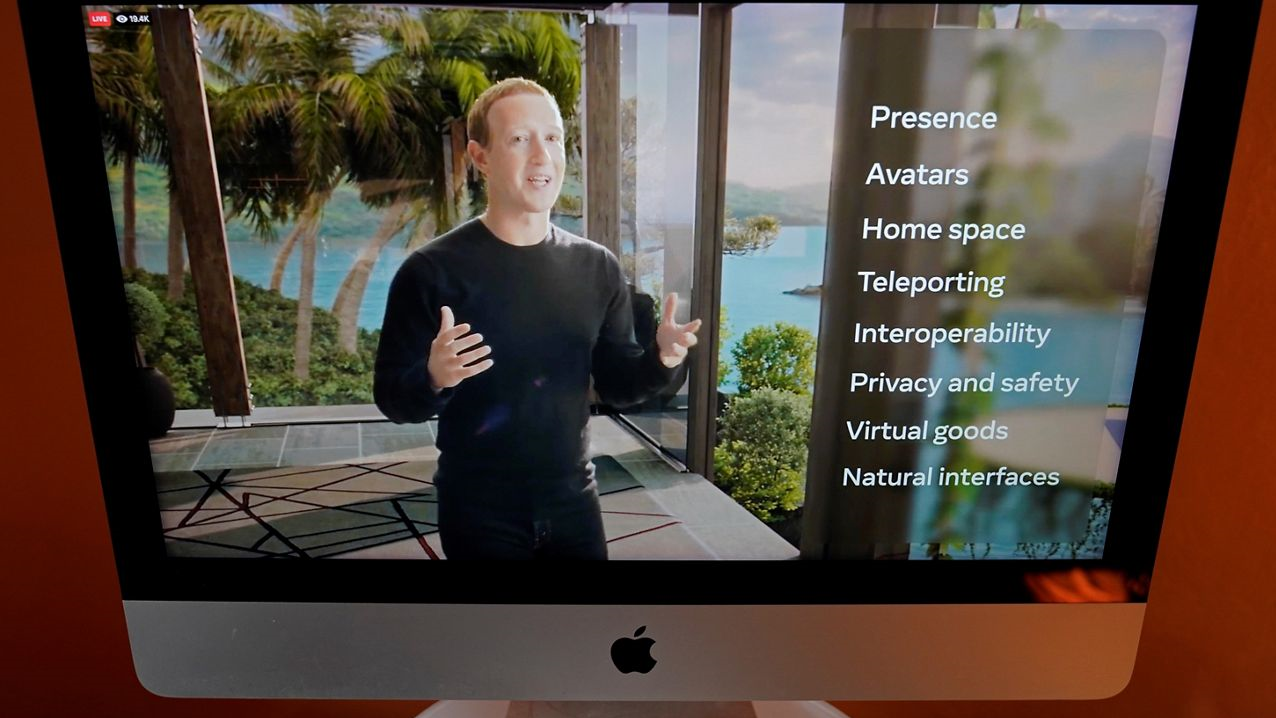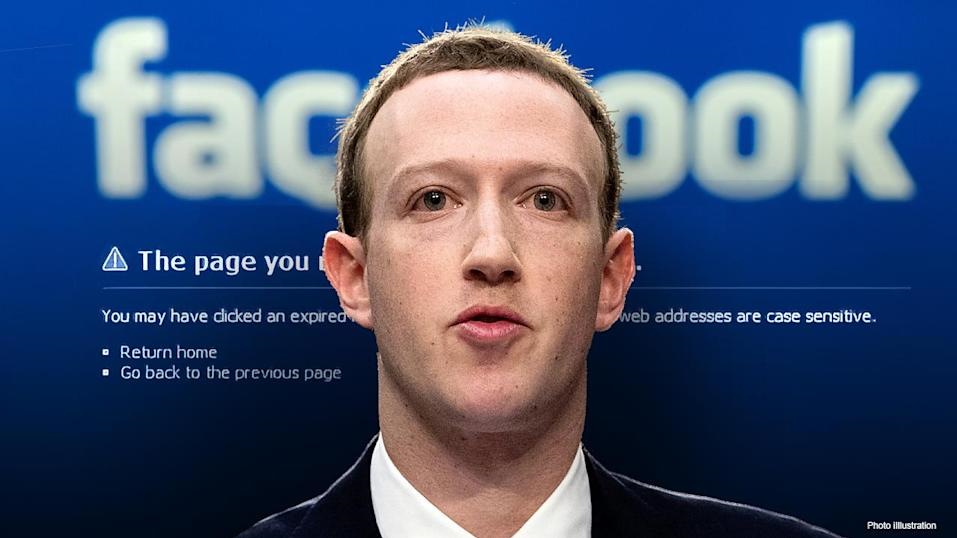What is Zuckerberg’s global threat / Is meta invading privacy?

Fars News Agency – Media Group – Alireza Sepahvand: When Mark Zuckerberg announced his ambitious plans to build Metavars – a virtual reality structure aimed at replacing the Internet, integrating virtual life with real life, and creating endless new playgrounds for all – he promised, “Whatever you imagine, “You can do it.” But this idea may not be great, for the reasons that will be presented to you in the following.
Experts believe that Mark Zuckerberg will create many problems in the world by changing the structure of Facebook, which is now called meta. Consequences for which apparently no solution has been devised.
Zuckerberg, the CEO of the company, formerly known as Facebook, even changed its name to Meta to emphasize the importance of the effort. In late October, he went on to go to virtual concerts with his friends, fencing holograms of Olympic athletes and – best of all – joining augmented reality business meetings where some of the participants were physically present, while others metawares. Enjoy playing cartoon avatars.
But it is as easy to imagine the negative aspects of dystopia. Suppose Metavers also makes possible a much larger, yet more personalized version of the harassment and hatred that Facebook is lazy to deal with on the Internet today? Or will it eventually reach the big tech companies that have tried to control the current Internet and serve as gatekeepers for the virtual reality version? Or does it become a vast array of virtual communities in which every visitor is constantly monitored, analyzed, and advertised? Or does it abandon any attempt to restrict the freedom of the user to allow fraudsters, human traffickers and cybercriminals to commit crimes with impunity?

“Imagine an online troll campaign, but a campaign in which a barrage of ugly words you may see on social media, a group of angry users shouting at you,” said Amy Stepanovich, executive director of Silicon Flatiron at the University of Colorado. The only way to escape is to turn off the device.
“We treat it differently,” he says. “Someone shouting at us until someone types something for us, there is a potential for this damage to really increase.”
“Fifteen years ago, this plan was an internet craze and it still attracts hundreds of thousands of online residents, and Meta is the best institution to guide us into the world,” said Philip Rosdale, founder of Second Life. It is not a parallel or a parallel world.

Describing VR Meta’s flagship product, Horizon, as the risk of creating online public spaces, Rosdale said, “The risk of creating online public spaces is only attractive to a ‘polar and specific group of people.’ In a safety tutorial, Meta advises Horizon users to treat their colleague avatars with kindness, and provides tips for blocking, ignoring, or reporting those who do not, and should be noted. More than one “school supervision” approach is needed to avoid a situation that only rewards the loudest shouts.
“Thank God, no one will come to the party,” he said. “We are not going to move the creative human engine into this realm.”
Activists are urging the United States to enact a national digital privacy law that applies not only to today’s platforms, such as Facebook, but also to platforms that may exist in Metawares. However, with the exception of a few states such as California and Illinois, there are no real online privacy laws in the United States.
“The better goal is to create systems that are fun and flexible enough to allow people who don’t know each other to get along well in a real place like New York’s Central Park,” added the founder of Second Life. Come to terms with it. He said part of it could be to rely on systems that help people build a reputation and a network of trusted acquaintances they can have in different worlds. In today’s web environment, such popular systems have a different history of controlling dangerous behavior.
It is not clear how long it will take the meta plan or any other Herx investing in MetaVerse to consider such issues. So far, tech giants from Microsoft and Apple to video game makers still focus heavily on discussing the status quo of Metavars.
Some developers say that in order for MetaVars to work, it must have a set of industry standards similar to those embedded in HTML (HyperText Markup Language or HTML is the standard markup language for documents designed to be displayed in a web browser). Form the “open markup language” used to structure websites since the 1990s.

“When you go to a website, you don’t think we’re going to get to the point in Metawares where you don’t have to go from one world to another and experience things in it,” says Richard Chris, Nvidia’s Amnews platform manager. Think I’m in the right place? You just click on the link.
Nvidia’s vision for an open standard includes a structure for 3D worlds developed by Pixar Film Studio and used by Apple. One of the key questions to be solved is how physics works in the meta-universe – does gravity and virtual gravity cause it to break if you drop the glass and hit the ground? Will these rules change as you move from place to place?
“The biggest and most important differences over Metawares focus on privacy and identity issues,” said Timoni West, vice president of augmented reality and virtual reality at Unity Technologies, which builds the engine for the video game world.


“The ability to share some things while not sharing other things is important when you are displaying your art in a virtual home but you do not want to share the details,” he said. “In digital spaces, there is a set of layers of authorization that the Internet can avoid, but you really have to do it all.”
Some meta-enthusiasts who have been working on this concept for years welcome the public page that can attract curious newcomers, but they also want to make sure that the meta does not spoil their view on how to build this new internet.
Ryan Gill, founder and CEO of Crucible startup Focus on MetaVers, says: “MetaVers is created by everyone and belongs to everyone, and the MetaVers that Mark Zuckerberg and his company claim was created by everyone but they own it.
Metavars tools rely on real-world emotions to track new gait, body movements, and postures to animate their avatars. There is work and information evacuation.
Gail said the big meta (Facebook) buzz is a response to ideas that are spinning in group-based development societies and revolve around “decentralized” technologies such as blockchain and interchangeable tokens, or NFTs, that can help people identify and validate online. Create and protect yourself.
He added: “The main focus of this technology movement, nicknamed ‘Web 3’, for the third wave of Internet innovation, is that what people create in these online communities belongs to them and a way to move away from the big technology model to ‘accumulate’.” “It’s more energy and attention and optimization to buy.”
Ivan Greer, an activist with the Struggle for the Future Foundation, said the Facebook meta announcement could easily be seen as a pessimistic and selfish attempt to distance itself from all the scandals the company is facing, and that even the meta pressure is even scarier. LT is.

He said: “Mark Zuckerberg reveals his latest game, which is not just to dominate the Internet today, but to control and define tomorrow’s Internet, which we leave to our children and our children’s children.”
The company has recently abandoned the use of face recognition in its Facebook app, but Metavars tools rely on new ways to track gait, body movements and postures to animate their avatars to real-world emotions. And with Facebook and Microsoft introducing meta-programs as important work tools, there is even the possibility of more aggressive workplace monitoring and data evacuation.
Activists are urging the United States to enact a national digital privacy law that applies not only to today’s platforms, such as Facebook, but also to platforms that may exist in Metawares. However, with the exception of a few states such as California and Illinois, there are no real online privacy laws in the United States.

End of message /
.

